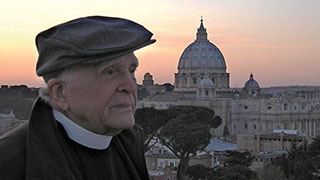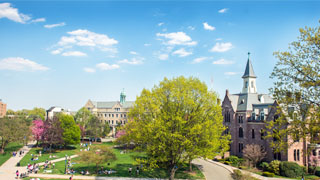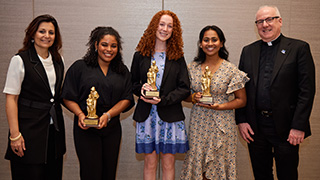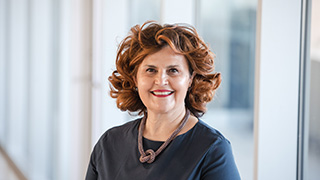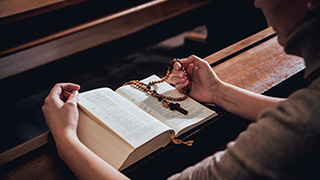Inside the Core: The University Core Offers Both Texts and Events This Week
Thursday, April 7, 2022
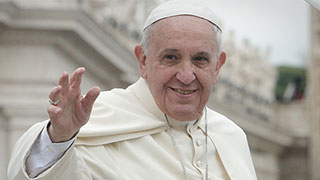
Gaudium et Spes, written in 1965 as part of Vatican II, explores the many problems facing the world at that time – many of them similar to those we face today: violence, war, poverty, injustice, divisions among people, loss of interest in religion, anxiety. Like Marx, the writers of this text are concerned about the marginalized, the poor, the suffering. Unlike Marx, the writers of Gaudium et Spes, while advocating for taking action and working for justice and the common good, write from a perspective of faith. However, the problems being addressed are very similar to those addressed by Marx and Engels. The joy and hope are motivated by faith that God truly loves us, that human beings (despite our many failings and problems) have great dignity and are made in the image of God, and there is truly hope for the world, if we act in light of what our faith teaches about the common good and our duty to love our neighbors, including those in other lands.
Finally, Pope Francis' Laudato Si focuses on a particular problem facing our time – the environmental crisis of climate change. Truly a call to action and addressed not only to believers but to all people of good will, the text passionately calls all of us to care responsibly for our common home, Madre Tierra or Mother Earth. The Holy Father particularly challenges wealthier nations, who do most of the polluting, to take on what he calls "ecological debt" owed to the poorer countries, who tend to bear the burden of climate change more than their richer (and guiltier) neighbors. As in all of Pope Francis' writings, a concern for the poor and the marginalized runs throughout this wonderful book.
Events this week go along with the readings. On Monday, April 4, we had the closing "on-the-green" event for Romero-King week and a half, which began on March 24. Honoring the two great martyrs of social justice, St. Oscar Romero (slain on March 24) and Dr. Martin Luther King, Jr., (slain on April 4), faculty, administrators, and students read aloud from the works of both leaders, in a moving ceremony that was opened and closed with prayer (led by Rev. Forrest Pritchett and Rev. Colin Kay, respectively). It was a beautiful celebration of the legacy of these two men, who died for the kinds of ideals celebrated in many of the texts we read in the Core, including those written by both King (in Core I) and Romero (in Core II).
Also Rev. Thomas Guarino gave a talk and book-signing for his latest publication, The Unchanging Truth of God: Crucial Philosophical Issues for Theology. We asked Msgr. Guarino to speak at the Scholars' Forum this week about his book, but he had already been scheduled to speak at ICSST about the same topic. We (those who sponsor the Scholars' Forum) decided not to hold it this week, but instead encouraged our faculty and, through them, others to attend this wonderful lecture on a topic deeply relevant to so much of what we teach in the University Core.
Finally, please look for upcoming events co-sponsored by the Core:
- Our third Inter-Religious Panel on Wed., April 20, from 12:30 – 1:45 p.m. in the Core Center (Mooney 33) and on TEAMS. The topic will be Suffering and Healing.
- Our third and last (for this semester) Scholars’ Forum in the Catholic Intellectual Tradition will present Dr. Ruth Tsuria, Assistant Professor of Communication in COAR, who will be discussing her recent book, Digital Religion: Understanding Religious Practice in Digital Media, second edition (Routledge, 2021).
Please mark your calendars and look for Inside the Core updates on both events.
Categories: Arts and Culture, Faith and Service

